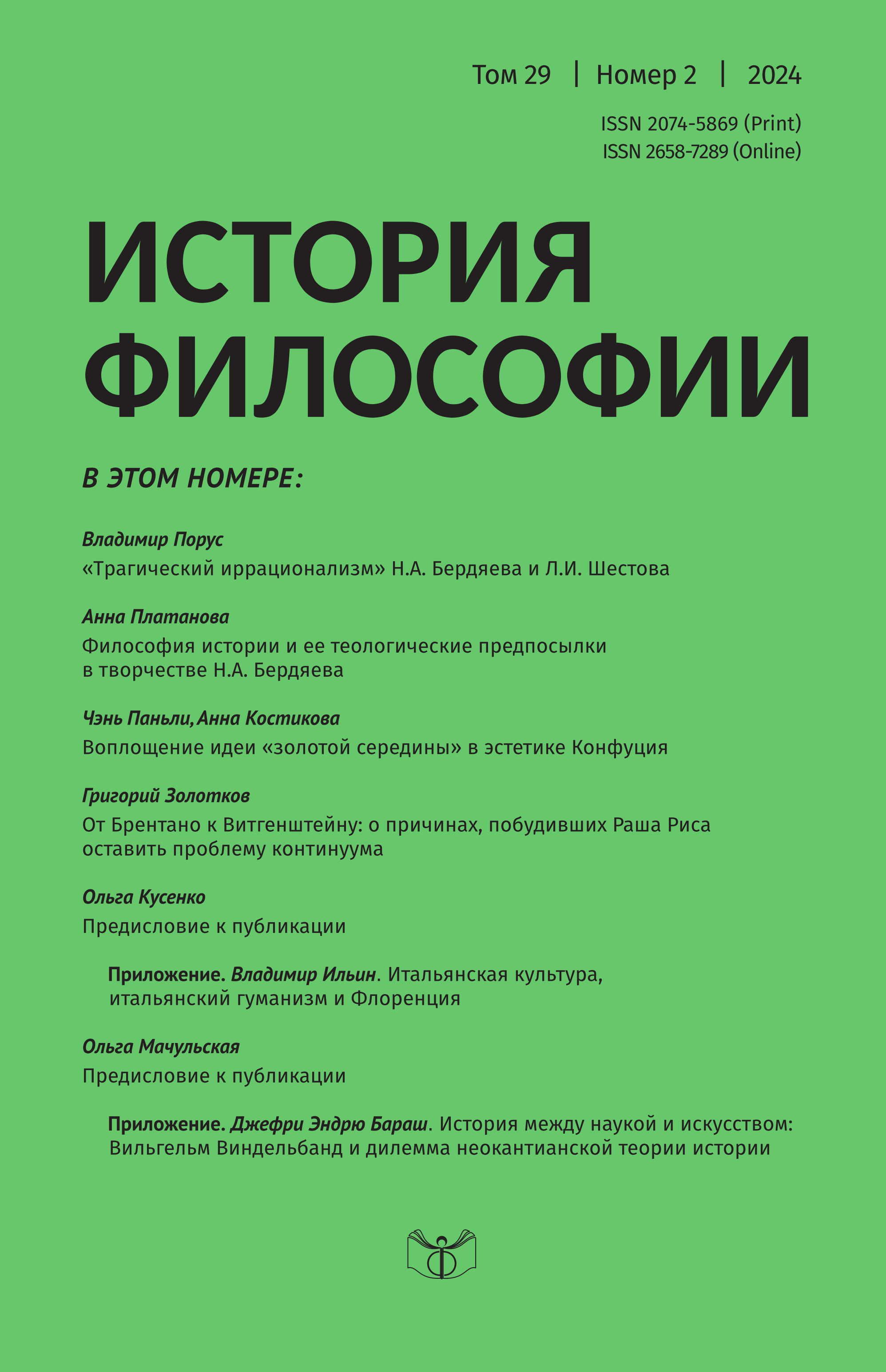Philosophy of History and Its Theological Premises in the Philosophy of N.A. Berdyaev
DOI:
https://doi.org/10.21146/2074-5869-2024-29-2-18-28Keywords:
N. Berdyaev, meaning of history, teleology, G.W.F. Hegel, I. Kant, K. Löwith, history, eschatology, Christianity, secularization, historiosophy, God, evilAbstract
The category of the meaning of history has long existed in European philosophy as one of its fundamental themes, which has undergone many collisions during its development. The last century has been marked by a radical revision of approaches to this theme both in the philosophy of history and in the tradition of intellectual history. In the twentieth century, Kant’s historical criticism was taken by German thought to its logical conclusion in such a way that the assertion of the meaning of history has actually suffered a fiasco in the field of rationalist philosophy. The purpose of this article is to attempt to show how the Russian philosopher Nikolai Berdyaev, witnessing the spiritual and political crisis of European and Russian culture, seeks a solution
to this problem within the philosophy of history, reformulating the problem of the meaning of history in a metaphysical way. To do this, he investigates theologically the foundations on which the historiosophic projects of the New Age are built, and tries to resolve the contradictions in the understanding of Christian revelation that are revealed in them. Returning the question of the meaning of history to its theological source allows Berdyaev to reconcile the contradictory hopes of philosophers of history for the realization of the personal freedom of its subjects with the existence of a universally meaningful sense in it.

